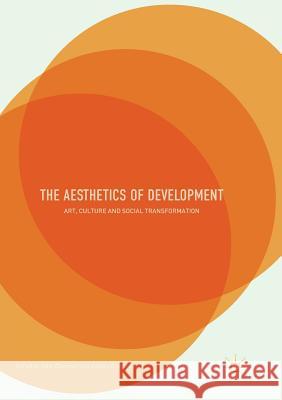The Aesthetics of Development: Art, Culture and Social Transformation » książka
topmenu
The Aesthetics of Development: Art, Culture and Social Transformation
ISBN-13: 9781349957736 / Angielski / Miękka / 2018 / 341 str.
Kategorie:
Kategorie BISAC:
Wydawca:
Palgrave MacMillan
Język:
Angielski
ISBN-13:
9781349957736
Rok wydania:
2018
Wydanie:
Softcover Repri
Ilość stron:
341
Waga:
0.43 kg
Wymiary:
21.01 x 14.81 x 1.91
Oprawa:
Miękka
Wolumenów:
01
Dodatkowe informacje:
Wydanie ilustrowane











